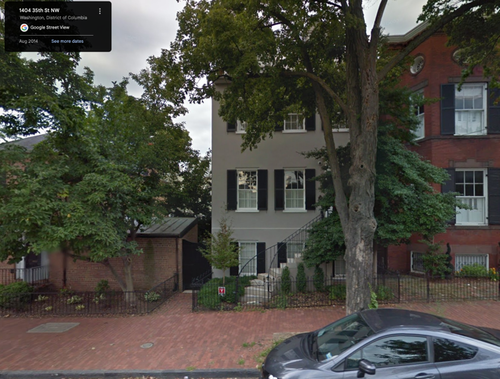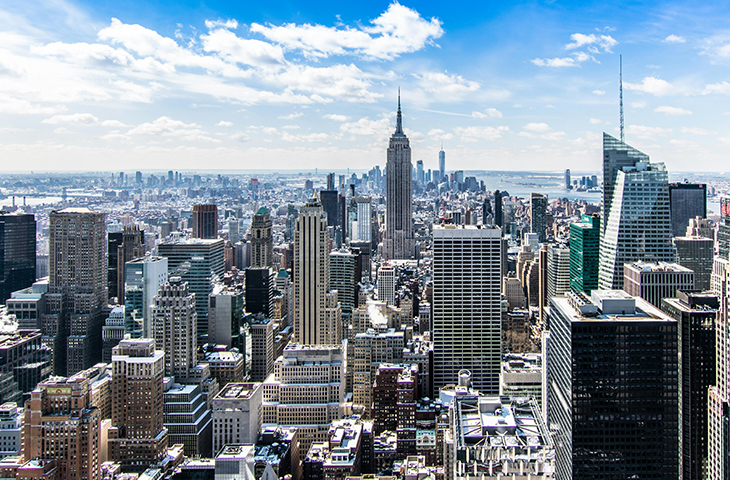Inside World Of high-net-worth Lending: kevin Plank Pledges Georgetown Home For $15m Commercial Loan

Inside World Of High-Net-Worth Lending: Kevin Plank Pledges Georgetown Home For $15M Commercial Loan
Local Baltimore media outlets have reported that Under Armour founder Kevin Plank—who returned as CEO in April 2024—recently pledged his $2 million Georgetown rowhouse as collateral for a $15 million loan. Just three months earlier, Plank relisted his 400-acre equestrian farm in northern Baltimore County. At the time, we asked one very simple question: Is the billionaire CEO searching for liquidity?
The Baltimore Sun—once a far-left, woke newspaper but now showing signs of journalistic revival under new ownership—reported that the $15 million loan is intended to fund or acquire "a business or commercial investment." The paper cited a deed of trust filed last week in Washington, D.C.
"The document makes no mention of specific investments in the filing with the district's recorder of deeds," The Sun wrote, adding Plank "signed the deed on May 9 in a deal to borrow $15 million from Breezewood DE LLC, a Denver-based limited liability company."
Shedding more light on the opaque world of high-net-worth lending—where anonymity and asset protection are often by design—a blog post from a local real estate team "Fox Homes Team" offers additional color, noting:
At the center of this transaction is Breezewood DE LLC, a Wyoming-registered limited liability company with no clear public-facing identity. The LLC was formed by Kevin Walton, a Denver-based attorney with the law firm Snell & Wilmer. Curiously, the LLC's mailing address traces back to the accounting firm Eide Bailly, also located in Denver—a layered structure that hints at deliberate opacity and financial insulation. This isn't uncommon in the world of high-net-worth lending, where anonymity and asset protection are often baked into the very architecture of a deal.
What stands out most is the explicit wording in the deed: the loan is designated for "carrying on or acquiring a business or commercial investment." That leaves a wide interpretive window—one that's fueling curiosity across financial and real estate sectors. The ambiguity has sparked a flurry of speculation. Is this loan a vehicle for expanding Plank's private investment firm, Sagamore Ventures? Is it tied to Under Armour's restructuring strategy? Or is it a positioning move to take advantage of D.C.'s evolving commercial real estate lending climate in 2025?
Whatever the answer, the use of a historically significant Georgetown property as collateral signals more than liquidity needs—it's a sophisticated financial tactic. The property isn't just real estate; it's equity in motion. And in this context, Georgetown's value isn't merely aesthetic—it's fiscal leverage in one of the most discerning real estate markets in the nation.
The designation of the loan for "acquiring a business or commercial investment" suggests to us that it will be used for a financial transaction via Plank's Sagamore Ventures, a privately held investment company managed by the Plank family and J. Kelly Dayton. Plank's venture arm has diversified holdings in commercial real estate, hospitality, food, and beverage.
Mapping Plank's empire via publicly available data:
At first glance, Plank's decision to collateralize his Georgetown home may seem unusual. But in reality, it's a common strategy among high-net-worth individuals looking to secure lower-cost financing—especially in today's environment of elevated interest rates, where swaps are only pricing in two 25-basis-point cuts by year-end.
Outside of whatever the Plank family may invest in next around the Baltimore metro area, the prospect of continuing to pour money into an imploding state—controlled by woke leftists in Annapolis—seems increasingly risky.
Decades of regime-style Democratic rule have culminated in a series of rolling crises: the first credit downgrade in half a century, massive deficits, violent crime, an energy crisis, homelessness, an opioid crisis, an illegal alien invasion, and a lopsided economy heavily dependent on government spending. Taken together, these issues risk transforming Maryland into "Illinois 2.0" by the end of the decade—triggering a deeper exodus of residents and businesses.
Last spring, Plank hosted a private fundraiser for far-left Governor Wes Moore—whose tenure has been nothing short of a disaster for Maryland.
We get that Plank and his inner circle have to play the game of local politics in a state run by Marxist Democrats. But seriously...
In markets, Under Armour is still undergoing a restructuring process, with shares down 19% (as of Friday's close) on the year.


